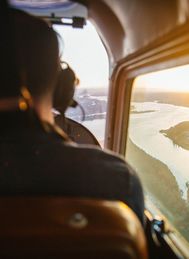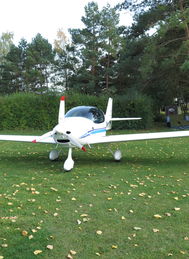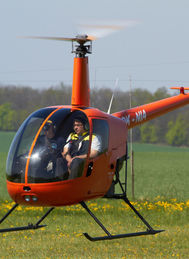We offer several IFR courses for pilots who want to fly professionally and for those who just enjoy flying.
Courses usually include:
- Theoretical: Here pilots learn about navigation systems and instruments, IFR flight procedures, flight planning, understanding weather and other important topics.
- Practical training: This part includes flight training with an instructor as well as solo flights. Practical training includes practicing various flight procedures, low visibility landings and takeoffs, and handling various emergency situations.
An IFR rating gives you a number of benefits:
- Better preparedness for poor conditions: an IFR rating teaches you to fly without visual references, which is useful when you find yourself in poor conditions such as fog, rain or low cloud.
- More flexibility: if you are an IFR qualified pilot, you can fly in a wider range of conditions and times. This means you are less constrained by weather and can plan flights with more confidence.
- Safety: an IFR rating gives you the tools and skills that can make your flight safer if you encounter unexpected weather conditions.
- Permission to fly in controlled airspace: Without an IFR rating, many airspaces are closed to pilots. An IFR rating allows you to fly in controlled airspace and land at airports where required.
- Preparing for a career in commercial aviation: If you plan to become a professional pilot, an IFR rating is virtually essential. All commercial flights are operated under IFR, so this is a key skill you will need.
- Improving your skills and confidence: the process of gaining an IFR rating improves your piloting skills and confidence. Flying by instrument requires precision, multitasking and good decision-making skills. These skills are then applied to any flying, whether IFR or VFR.

IR – Instrument rating SEP
The IR qualification entitles the pilot to fly by instrument. As one of the few schools in the Czech Republic, we also focus on IR-based training to help you achieve a cheaper full-featured IR qualification.

IR - Instrument Rating MEP
License extension for multi-engine instrumentation flights.

Basic Instrument Rating BIR
A new type of instrument flight training for pilots who just want to fly for fun. It fully replaces the EIR instrument rating training.

EIR trackside instrument rating
Trackside IR is a great license for those who want to travel safely over longer distances, without being totally dependent on the weather, yet do not want to take full IR training.







